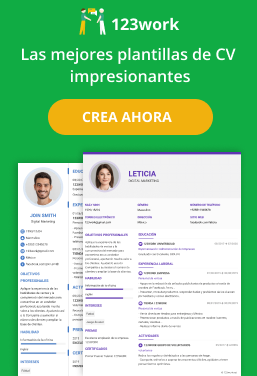EUROPEAN SPACE AGENCY
Young Graduate Trainee in Artificial Intelligencefor Embedded Space Systems
Young Graduate Opportunity in the Directorate of Technology, Engineering and Quality
ESA is an equal opportunity employer, committed to achieving diversity within the workforce and creating an inclusive working environment. We therefore welcome applications from all qualified candidates irrespective of gender, sexual orientation, ethnicity, beliefs, age, disability or other characteristics. Applications from women are encouraged.
This post is classified F1 on the Coordinated Organisations’ salary scale.
Location
ESTEC, Noordwijk, Netherlands
Our team and mission
The Software Systems team has the responsibility in domain of software engineering for flight and ground software systems. It is supporting all ESA satellite projects in the related technologies, covering software engineering technologies, methods, tools, architectures, and standards. Specific interest goes into the aspect of system-software co-engineering over the entire development life-cycle, starting from requirements engineering and modelling, design methods, to automatic code and test generation, including the required languages and compilers. Modelling and simulation is used to support system engineering and testing and verification.
Model-based system and software technologies as well as advanced software technologies such as Artificial Intelligence, Big Data and data warehousing are pushed to improve future systems capabilities and their way to develop them.
You are encouraged to visit the ESA website: http://www.esa.int
Field(s) of activity/research for the traineeship
Artificial intelligence is more and more used in Space Systems through application of various techniques for supporting the development of applications in all space domains. Some techniques like machine learning are now well established and provide results is many domains. Generative AI and more specifically large language modelling (LLM) has emerged recently and is evolving at a breathtaking pace and is being applied to various domains and applications. Its application to the domain of space is still limited but very promising.
The objective of the this opportunity is to characterise the existing LLM and to identify the interest is several topics related to the development and operation of Space Systems covering both Ground and Space segments.
As a Young Graduate Trainee, you shall:
1. Identify and characterise the existing LLM, in view of their application by ESA and space industries also considering the most recent results of the ESA activities in that domain.
2. Identify one or several applications of LLM in the domain of the Software Systems team. Some typical applications are:
- Support to the definition of space system ontologies from existing technical documentation.
- Support to engineers for the modelling of system/software models.
- Support to astronauts in the execution of their tasks.
- Support to the validation of software and spacecraft.
3. Evaluate the interest of instruction tuning (and FLAN collection) for the identified models and application.
4. Identify methods for reducing an existing generic LLM to a specialised domain model so that the reduced model can be more easily executed on embedded systems.
5. Prototype at least one application based on LLM and evaluate its performance (accuracy and resources) using standard, instruction tuned (if applied) and reduced models.
6. Potentially iterate tasks 3 and 4 to optimise the results and/or reduce further the LLM.
Technical competencies
Behavioural competencies
Result Orientation
Operational Efficiency
Fostering Cooperation
Relationship Management
Continuous Improvement
Forward Thinking
Education
You should have just completed or be in the final year of your master’s degree in computer science.
Additional requirements
You should have good interpersonal and communication skills and should be able to work in a multicultural environment, both independently and as part of a team.
The working languages of the Agency are English and French. A good knowledge of one of these is required. Knowledge of another Member State language would be an asset.
During the interview motivation and overall professional perspective/career goals will also be explored.
Other information
For behavioural competencies expected from ESA staff in general, please refer to the ESA Competency Framework.
For further information on the Young Graduate Programme please visit: Young Graduate Programme andFAQ Young Graduate Programme
At the Agency we value diversity and we welcome people with disabilities. Whenever possible, we seek to accommodate individuals with disabilities by providing the necessary support at the workplace. The Human Resources Department can also provide assistance during the recruitment process. If you would like to discuss this further please contact us email contact.human.resources@esa.int.
--------------------------------------------------------------------------------------------------------------------------------------------------
Please note that applications are only considered from nationals of one of the following States: Austria, Belgium, the Czech Republic, Denmark, Estonia, Finland, France, Germany, Greece, Hungary, Ireland, Italy, Luxembourg, the Netherlands, Norway, Poland, Portugal, Romania, Spain, Sweden, Switzerland, and the United Kingdom. Nationals from Latvia, Lithuania, Slovakia and Slovenia, as Associate Member States, or Canada as a Cooperating State, can apply as well as those from Bulgaria, Croatia and Cyprus as European Cooperating States (ECS).
According to the ESA Convention, the recruitment of staff must take into account an adequate distribution of posts among nationals of the ESA Member States*. When short-listing for an interview, priority will first be given to candidates from under-represented Member States*.
In accordance with the European Space Agency’s security procedures and as part of the selection process, successful candidates will be required to undergo basic screening before appointment conducted by an external background screening service.
*Member States, Associate Members or Cooperating States.


